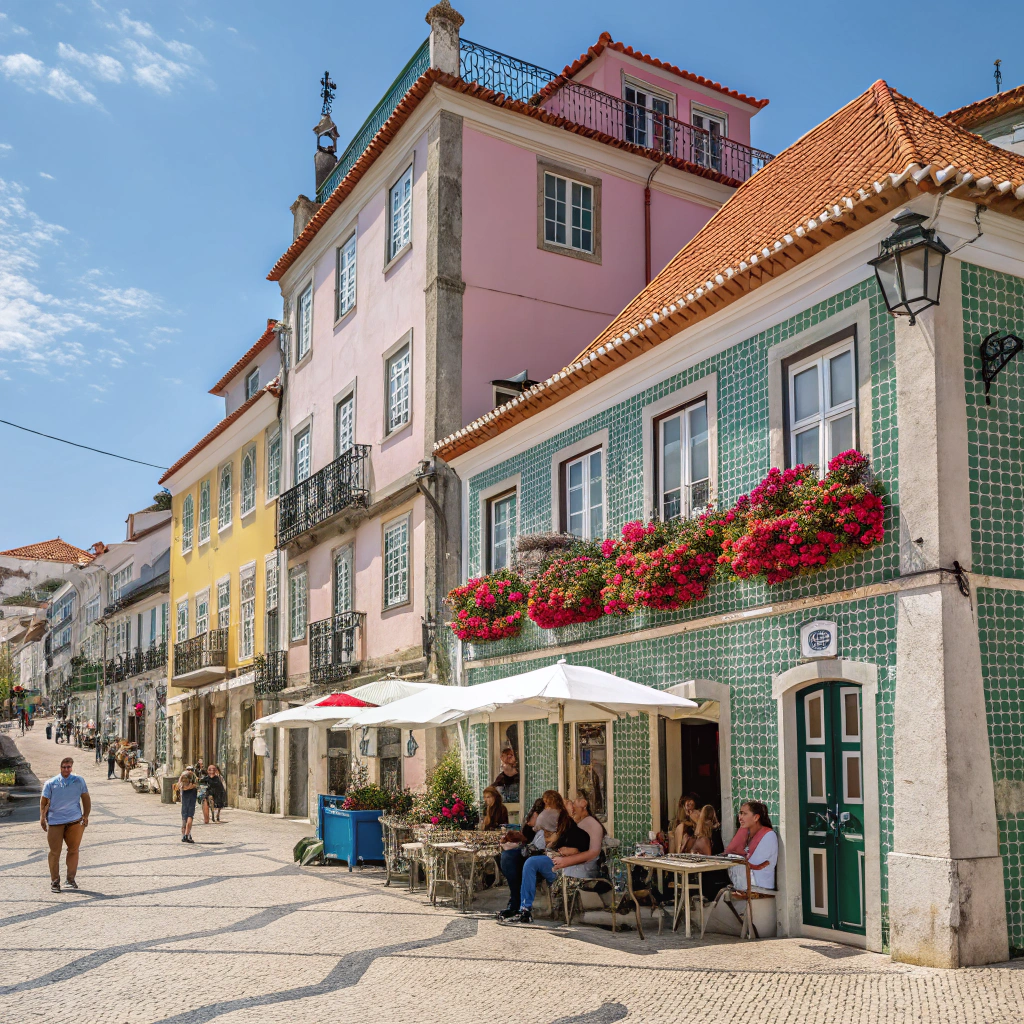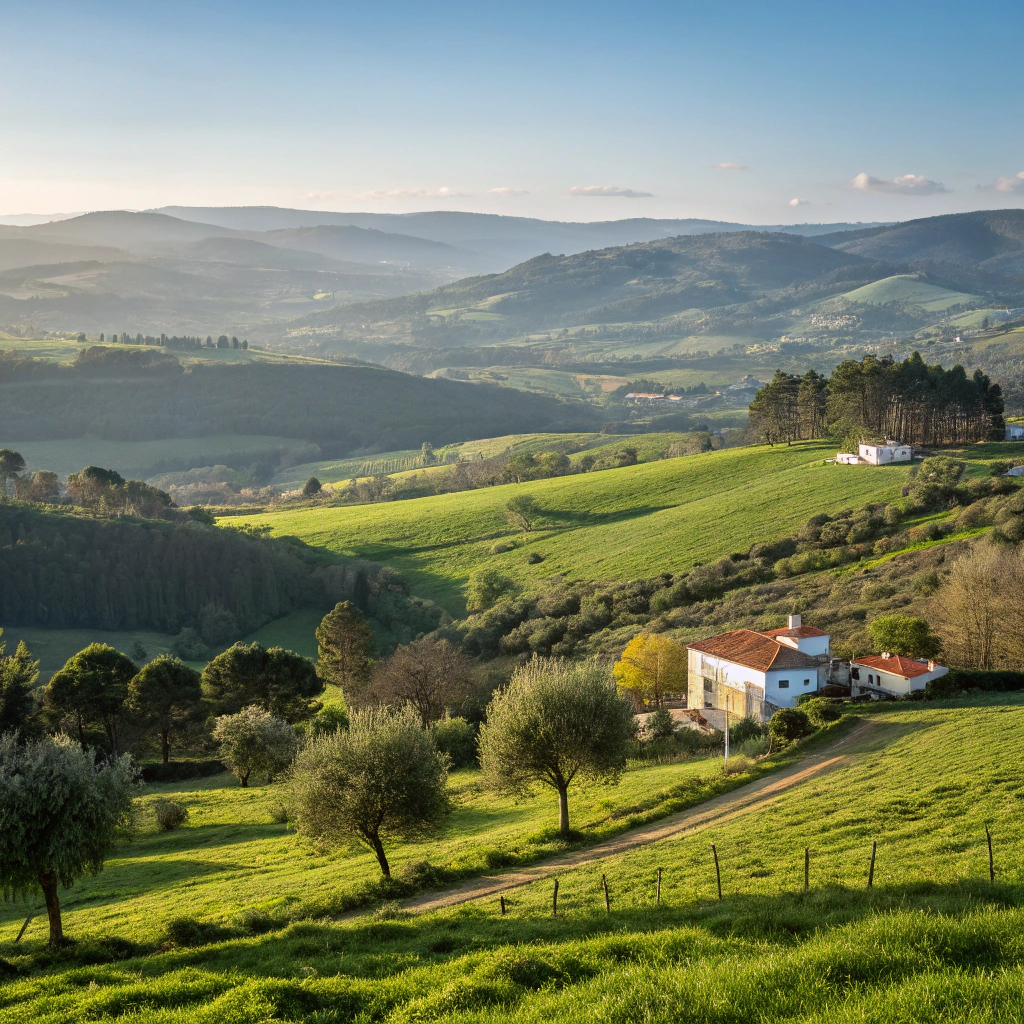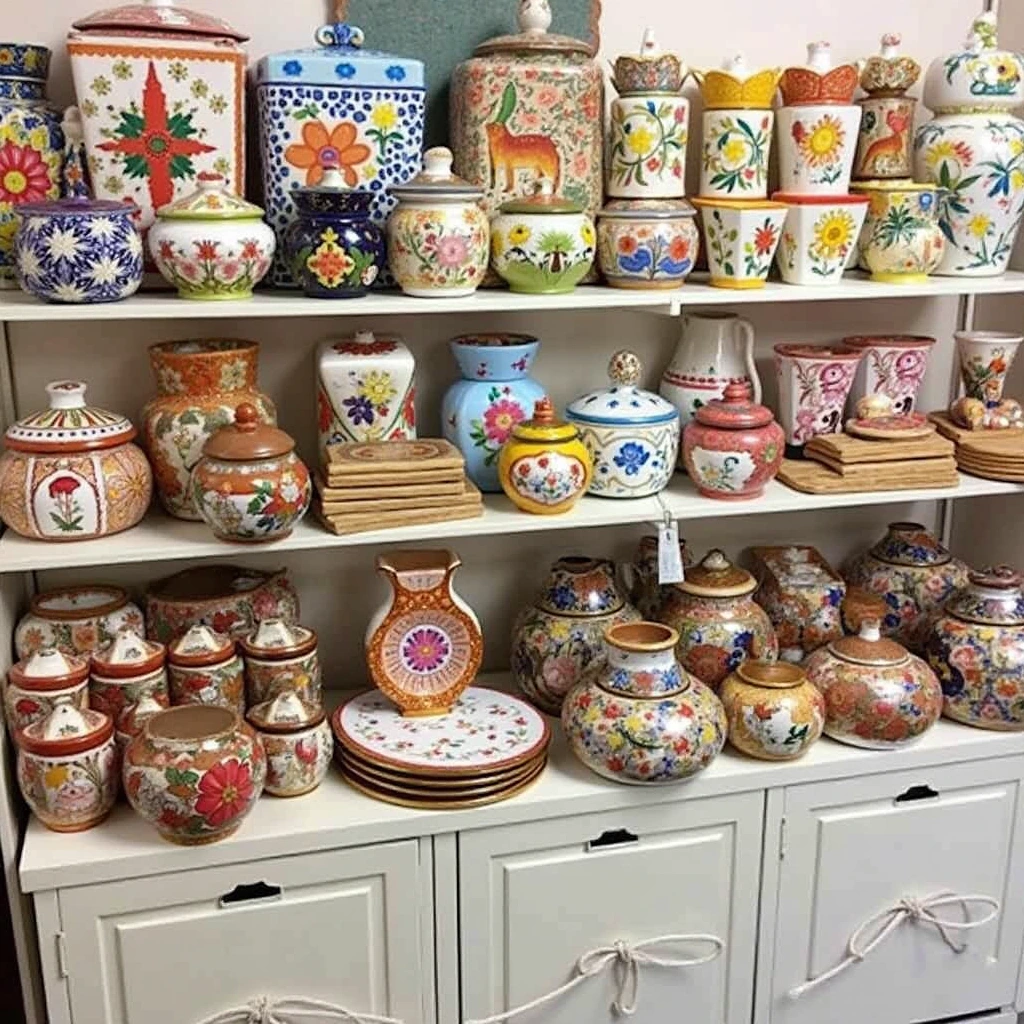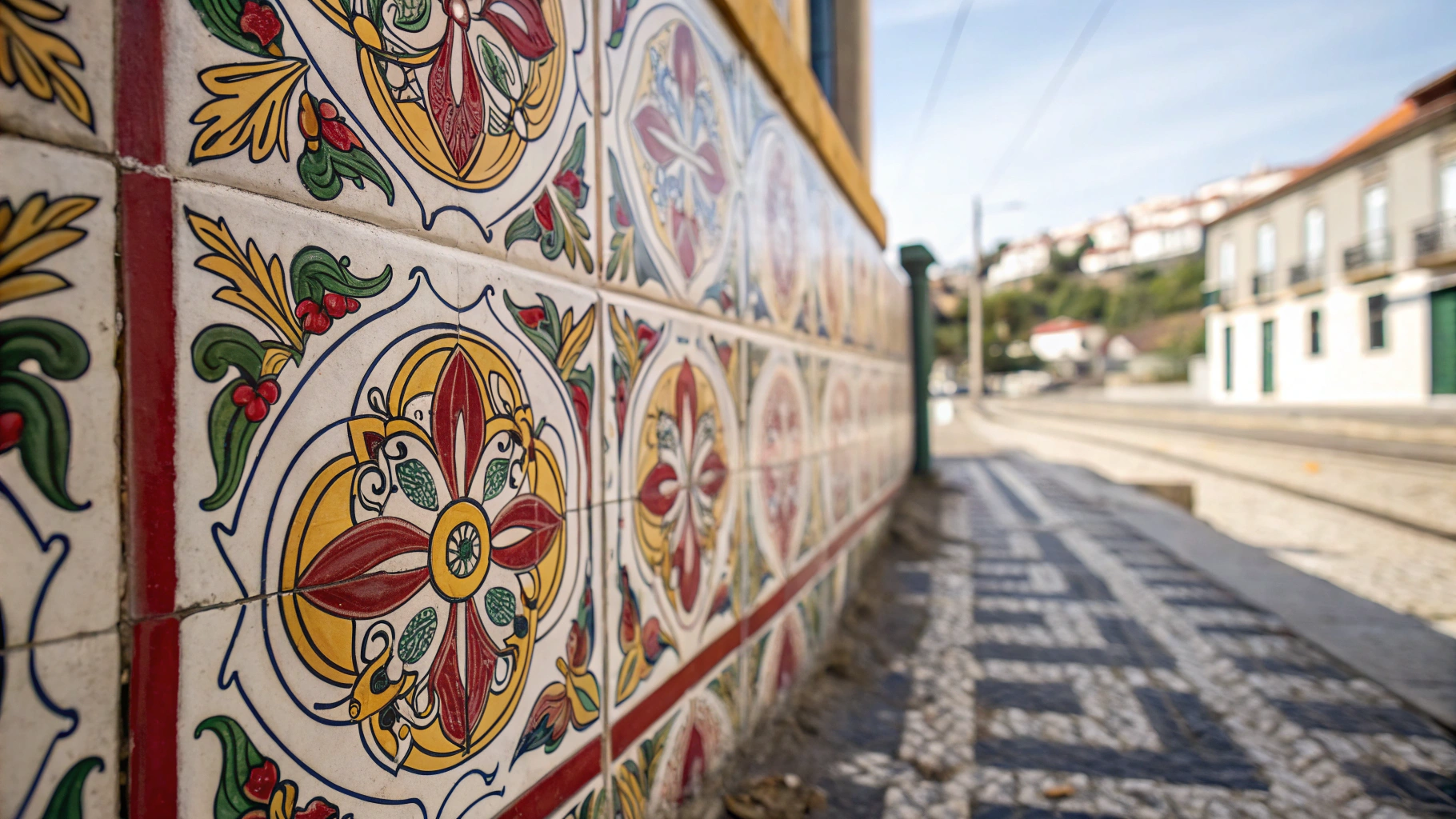Made in Portugal Products
Portugal’s rich cultural heritage and centuries-old traditions have given rise to some of the world’s most distinctive artisanal products. The “made in Portugal” label represents exceptional quality, craftsmanship, and authenticity that travelers seek when visiting this captivating Mediterranean country. From intricately designed ceramics to premium textiles and world-class wines, Portuguese artisans have perfected their craft through generations of dedicated workmanship.
When planning your Portuguese adventure, discovering authentic made in Portugal products should be high on your travel itinerary. These treasures not only make perfect souvenirs but also represent meaningful connections to Portuguese culture and history. As you journey through charming villages and bustling cities, you’ll encounter countless opportunities to engage with local craftspeople and witness traditional production methods that have remained largely unchanged for centuries.
Table of Contents
This comprehensive guide will take you through everything you need to know about shopping for genuine Portuguese products – from iconic traditional items to contemporary designs that showcase Portugal’s evolving creative scene. We’ll explore the best regions for specific products, share insider tips on finding authentic pieces, and help you navigate your shopping experience with confidence.
Traditional Portuguese Ceramics and Pottery
The History and Cultural Significance of Azulejos
Perhaps nothing symbolizes Portuguese decorative arts more distinctly than azulejos – the iconic blue and white ceramic tiles that adorn churches, palaces, and ordinary homes throughout the country. This made in Portugal treasure dates back to the 13th century when the Moors introduced the technique to the Iberian Peninsula. However, Portuguese artisans developed a unique style that reached its peak during the 18th century.
Azulejos tell Portugal’s story through elaborate designs depicting historical events, religious scenes, and pastoral landscapes. Cities like Lisbon and Porto showcase spectacular examples of these tiled masterpieces, with the National Tile Museum (Museu Nacional do Azulejo) in Lisbon housing an extensive collection spanning five centuries of production. When shopping for authentic azulejos, look for handpainted pieces from workshops in Lisbon, Porto, and Coimbra.
Famous Portuguese Pottery Centers
The tradition of Portuguese pottery extends far beyond azulejos. Several regions have developed distinctive ceramic styles that have become prized collectibles:
- Caldas da Rainha: Famous for its whimsical ceramic pieces decorated with animals, fruits, and vegetables. The iconic rooster of Barcelos originated in this region.
- Barcelos: Home to the colorful Galo de Barcelos (Rooster of Barcelos), one of Portugal’s most iconic symbols and a popular souvenir.
- Alcobaça: Known for its delicate white ceramics with subtle decorative motifs.
- Redondo and São Pedro do Corval: The Alentejo region is renowned for its earthenware pottery with distinctive geometric designs.
When purchasing authentic made in Portugal ceramics, look for workshops that maintain traditional production methods. Many allow visitors to observe artisans at work, providing a deeper appreciation for these handcrafted treasures.
Contemporary Portuguese Ceramic Artisans
While honoring traditional techniques, a new generation of Portuguese ceramic artists is reimagining this ancient craft for contemporary tastes. Brands like Bordallo Pinheiro create distinctive tableware featuring naturalistic motifs, while innovative studios in Porto and Lisbon produce minimalist designs that blend traditional craftsmanship with modern aesthetics.
These contemporary interpretations of Portuguese ceramics make exceptional souvenirs that blend seamlessly with modern home décor. When shopping for these pieces, visit concept stores in urban centers or the designers’ own studios for the most current collections of products from Portugal.
Portuguese Textiles and Linens
The Legacy of Portuguese Embroidery
Portugal’s tradition of exquisite handmade textiles dates back centuries, with each region developing distinctive embroidery styles. The island of Madeira gained international fame for its intricate and delicate embroidery, often appearing on luxurious linens, clothing, and household items. Viana do Castelo in northern Portugal is renowned for its colorful folk embroidery, often incorporating heart motifs that have become symbolic of Portuguese culture.
These handmade goods from Portugal represent countless hours of skilled craftsmanship. When shopping for authentic Portuguese embroidery, look for certification marks that guarantee the product’s origin and adherence to traditional techniques. The finest pieces come from specialized shops in Madeira, Viana do Castelo, and boutiques in major cities that showcase authentic Portuguese products.
Traditional Portuguese Rugs and Carpets
Portugal’s rug-making tradition encompasses several distinct styles, most notably the Arraiolos rugs from the Alentejo region. These hand-embroidered wool carpets feature intricate patterns inspired by Persian and Moorish designs but reimagined with Portuguese sensibilities. Traditionally, they feature vibrant colors and elaborate floral or geometric motifs.
The best place to purchase authentic Arraiolos rugs is directly from the workshops in the town of Arraiolos itself, where you can observe artisans creating these masterpieces using techniques passed down through generations. These made in Portugal treasures represent significant investments but are heirloom-quality pieces that will last for generations.
Portuguese Blankets and Modern Textile Innovations
The Serra da Estrela region is famous for its wool blankets (mantas), traditionally created by shepherds to protect against the harsh mountain climate. Today, these distinctive blankets have been reimagined by contemporary designers who preserve traditional weaving techniques while introducing modern colors and patterns.
Brands like Burel Factory have revitalized traditional Portuguese wool production by creating innovative products that appeal to contemporary consumers. Their sustainable approach honors the made in Portugal heritage while creating economic opportunities in rural areas. When shopping for these textiles, visit their flagship stores in Lisbon or the factory in Manteigas for the full range of products.

Portuguese Leather Goods and Footwear
The Renowned Portuguese Shoe Industry
Portugal has emerged as one of Europe’s premier destinations for high-quality leather footwear, with the northern regions around Porto housing some of the world’s finest shoe manufacturers. Portuguese shoes combine traditional craftsmanship with contemporary design, creating products known for exceptional comfort, durability, and style.
Many luxury international brands manufacture their footwear in Portugal’s specialized factories, but the country also boasts impressive domestic brands. Companies like Carlos Santos, Luís Onofre, and Storytailors showcase the finest made in Portugal craftsmanship. The best shopping opportunities for Portuguese footwear can be found in Porto and Lisbon’s boutiques, as well as factory outlets in northern Portugal.
Handcrafted Portuguese Leather Bags and Accessories
Beyond footwear, Portugal excels in creating exceptional leather goods, including handbags, wallets, belts, and accessories. Cities like Alcanena have centuries-old traditions of leather tanning, creating some of Europe’s finest materials for artisanal production.
Contemporary Portuguese leather brands like Ideal & Co and La Portegna create minimalist, high-quality pieces that showcase the exceptional quality of Portuguese leather. When shopping for authentic Portuguese leather goods, look for items that prominently feature their “made in Portugal” heritage and provide information about their production methods.
Portuguese Cork Fashion Innovations
Portugal produces over 50% of the world’s cork, primarily from the cork oak forests of the Alentejo region. While traditionally associated with wine stoppers, Portuguese designers have pioneered innovative uses for this sustainable material in fashion and accessories.
Cork fashion items—including bags, wallets, shoes, and even clothing—represent Portugal’s commitment to sustainable production methods while creating distinctively Portuguese products. Brands like Pelcor and Corque Design have gained international recognition for their innovative cork creations. These unique products from Portugal make excellent souvenirs that combine sustainability with distinctive style.
Portuguese Wine and Spirits
Portugal’s Diverse Wine Regions and Varietals
Portugal’s winemaking tradition spans thousands of years, with the country’s diverse climate and topography creating ideal conditions for distinctive wine varieties. The Douro Valley, a UNESCO World Heritage site, is the oldest demarcated wine region in the world and home to Portugal’s famous Port wines. Other notable regions include:
- Vinho Verde: Light, slightly sparkling white wines from northern Portugal
- Dão and Bairrada: Complex reds from central Portugal
- Alentejo: Full-bodied reds and fruity whites from southern Portugal
- Madeira: Fortified wines from the island of Madeira known for their remarkable longevity
When purchasing authentic made in Portugal wines, visit local wine shops (garrafeiras) or the producers themselves for the best selection and expert advice. Many wineries offer tours and tastings that provide deeper insight into Portuguese winemaking traditions.
Port Wine: Portugal’s Liquid Gold
Port wine represents Portugal’s most internationally recognized wine product. This fortified wine comes exclusively from the Douro Valley, where steep terraced vineyards produce grapes of exceptional concentration. The wine undergoes a unique production process, with grape spirits added to halt fermentation, resulting in Port’s characteristic sweetness and higher alcohol content.
Port comes in several styles, including Ruby, Tawny, White, and Vintage, each with distinctive characteristics. The historic Port houses in Vila Nova de Gaia, across the river from Porto, offer excellent tours and tasting opportunities. When selecting Port as a Portuguese souvenir, consider aged varieties like 10, 20, or 30-year Tawny Ports, which showcase the complex flavors that develop over time.
Ginja and Other Traditional Portuguese Spirits
Beyond wine, Portugal produces several distinctive spirits worth seeking out. Ginjinha (or simply Ginja) is a sour cherry liqueur traditionally served in small chocolate cups in Lisbon and Óbidos. Medronho, a potent fruit brandy from the Algarve, and Licor Beirão, an herbal liqueur, represent other authentic products from Portugal.
These traditional spirits make excellent souvenirs that capture Portugal’s culinary heritage. Look for handcrafted versions from small producers at local markets or specialized shops. Many offer attractive packaging that makes them ideal gifts, while their distinctive flavors provide a memorable taste of Portuguese tradition.
Portuguese Food Products and Delicacies
Portuguese Olive Oil Excellence
Despite being less internationally known than its Mediterranean neighbors, Portugal produces exceptional olive oils, particularly from the Alentejo, Trás-os-Montes, and Beira Interior regions. Portuguese olive oils typically have distinctive fruity, spicy, and herbaceous notes, reflecting the country’s unique olive varieties and terroir.
Many Portuguese olive oil producers have won international awards for their premium products. When shopping for authentic made in Portugal olive oil, look for DOP (Protected Designation of Origin) certification and recent harvest dates to ensure freshness. Specialized food shops and producers’ outlets offer tasting opportunities to help you select the perfect olive oil souvenir.
Preserved Fish and Conservas Culture
Portugal’s long Atlantic coastline has shaped its culinary traditions, with preserved fish (conservas) representing a distinctive part of Portuguese food culture. Tinned sardines, mackerel, tuna, and octopus – often preserved in high-quality olive oil with various seasonings – showcase Portugal’s seafood heritage.
These preserved fish products have experienced a renaissance, with beautiful retro packaging making them attractive souvenirs. Specialty shops in Lisbon and Porto like Conserveira de Lisboa and Comur offer extensive selections of these authentic Portuguese products. The long shelf life of conservas makes them perfect souvenirs that bring Portuguese flavors to your home long after your trip.
Portuguese Cheeses, Honey, and Preserves: Made in Portugal
Portugal’s diverse landscapes produce exceptional artisanal food products beyond seafood and olive oil. The country’s cheese tradition includes distinctive varieties like Serra da Estrela (a soft sheep’s milk cheese), Azeitão, and São Jorge from the Azores. These handmade goods from Portugal reflect regional traditions and seasonal ingredients.
Portuguese honey varieties include distinctive flavors like rosemary, orange blossom, and chestnut, while fruit preserves often showcase unique Portuguese fruits like quince (marmelo). When shopping for these delicacies, visit local markets and specialty food shops where you can often sample products before purchasing. Look for DOP or IGP certifications that guarantee authentic regional production methods.
Portuguese Jewelry and Filigree
The Ancient Art of Portuguese Filigree: Made in Portugal
One of Portugal’s most distinctive craft traditions is filigree – an intricate jewelry-making technique where thin threads of gold or silver are twisted and arranged to create delicate, lace-like patterns. This ancient art form reached its pinnacle in the northern regions around Gondomar and Póvoa de Lanhoso, where it remains an important cultural heritage.
Traditional Portuguese filigree pieces include heart-shaped pendants (coração de Viana), earrings, and elaborate necklaces often worn with regional folk costumes. Today, skilled artisans continue to create these intricate pieces using techniques passed down through generations. When shopping for authentic made in Portugal filigree, visit specialized jewelry shops in Porto, Viana do Castelo, and Lisbon, where you can find pieces ranging from traditional designs to contemporary interpretations.
Contemporary Portuguese Jewelry Designers: Made in Portugal
While honoring traditional techniques like filigree, a new generation of Portuguese jewelry designers is creating innovative pieces that showcase Portuguese craftsmanship in modern forms. Designers like Liliana Guerreiro and Lia Gonçalves reinterpret traditional motifs with contemporary sensibilities, creating wearable art that connects to Portugal’s craft heritage.
These contemporary jewelry pieces make exceptional souvenirs that combine Portuguese artisan crafts with modern aesthetics. Look for these designers’ work in concept stores and jewelry boutiques in Lisbon and Porto, or visit their studios directly for a more personal shopping experience.
Gold and Silver Traditions in Portuguese Culture: Made in Portugal
Precious metals have played an important role in Portuguese culture for centuries, with gold jewelry traditionally serving as both adornment and financial security. Different regions developed distinctive styles, with northern Portugal particularly known for its elaborate gold work. The Portuguese assay system guarantees the quality of precious metals, with hallmarks indicating gold purity.
When shopping for gold and silver jewelry in Portugal, familiarize yourself with these hallmarks to ensure authenticity. Established jewelry shops in major cities and specialized stores in gold-working centers like Gondomar offer the best selection of these valuable made in Portugal treasures.

Portuguese Home Goods and Decorative Arts
Portuguese Furniture and Woodworking: Made in Portugal
Portugal has a rich tradition of fine woodworking, with distinctive furniture styles that blend functional elegance with decorative elements. The northern regions around Porto developed a tradition of solid, ornate pieces often featuring intricate carvings, while contemporary Portuguese designers create minimalist furniture that showcases exceptional craftsmanship.
Brands like Munna and Boca do Lobo represent the luxury end of Portuguese furniture design, while numerous small workshops throughout the country produce custom pieces. For travelers seeking authentic made in Portugal home goods, smaller decorative items like hand-carved wooden bowls, cutting boards, or decorative objects make practical souvenirs that showcase Portuguese woodworking skills.
Portuguese Glass and Crystal: Made in Portugal
The glass-making tradition in Portugal dates back centuries, with the Marinha Grande region becoming the country’s glass production center in the 18th century. Portuguese crystal from companies like Atlantis and Vista Alegre is known for its exceptional clarity and intricate cutting patterns, representing some of the finest examples of Portuguese craftsmanship.
Contemporary glass artists have revitalized this tradition, creating innovative pieces that combine traditional techniques with modern designs. When shopping for Portuguese glass products, visit the factories’ outlet stores for the best prices on these exquisite products from Portugal, or explore specialized shops in major cities.
Contemporary Portuguese Design Objects: Made in Portugal
Portugal’s design scene has flourished in recent decades, with innovative creators producing distinctive home goods that blend traditional craftsmanship with contemporary aesthetics. From handmade ceramics to textile arts and decorative objects, these products showcase Portugal’s evolving creative landscape.
Design shops in Lisbon and Porto like A Vida Portuguesa and Claus Porto highlight the best of Portuguese design, offering carefully curated collections of authentic Portuguese products that make exceptional souvenirs. Many of these items come with stories about their makers and production methods, adding meaning to these handmade goods from Portugal.

Where to Shop for Authentic Made in Portugal Products
Traditional Markets and Craft Fairs: Made in Portugal
Portugal’s traditional markets provide excellent opportunities to discover authentic made in Portugal products directly from their makers. Weekly markets (mercados) in towns and villages throughout the country showcase local specialties, from food products to handcrafted items. Seasonal craft fairs like the São Mateus Fair in Viseu and FIA (International Handicrafts Fair) in Lisbon bring together artisans from across the country.
These markets offer a chance to engage directly with producers, learn about traditional techniques, and often find unique items not available in conventional stores. While some haggling is acceptable at informal markets, most craft fairs have fixed prices that reflect the true value of these handmade Portuguese goods.
Specialized Shops and Concept Stores: Made in Portugal
Portugal’s major cities host specialized shops dedicated to showcasing the country’s finest products. In Lisbon, stores like A Vida Portuguesa curate collections of traditional and contemporary Portuguese goods with an emphasis on authentic production and cultural significance. Porto’s growing design scene includes concept stores that blend Portuguese crafts with international design influences.
These specialized retailers offer carefully selected products from Portugal with knowledgeable staff who can explain the stories behind the items. While prices may be higher than at markets, these shops guarantee authenticity and often provide context about the cultural significance of their merchandise.
Factory Outlets and Direct-from-Producer Shopping: Made in Portugal
Many Portuguese manufacturers maintain factory outlets where travelers can purchase authentic products directly from the source, often at significantly reduced prices. The Vista Alegre outlet in Ílhavo offers discounted porcelain and crystal, while textile producers in northern Portugal operate factory stores with exceptional values on Portuguese linens and towels.
For wine enthusiasts, visiting vineyards and wineries provides opportunities to purchase bottles not available in regular retail channels. This direct-from-producer shopping not only offers better prices but also creates meaningful connections with the people who create these authentic Portuguese products.
FAQs About Shopping for Made in Portugal Products
What Are the Most Popular Souvenirs to Buy in Portugal?
Portugal offers a wealth of authentic souvenirs that showcase the country’s craftsmanship. The most sought-after items include azulejo tiles or ceramics, cork products (from wallets to handbags), traditional embroidered textiles, filigree jewelry, Portuguese wines (especially Port), and tinned fish conservas in decorative packaging. For food lovers, olive oil, cheese, and sweet treats like pastéis de nata make delicious edible souvenirs. The ideal Portuguese souvenir combines craftsmanship, cultural significance, and practical value—something that will bring memories of your trip long after you return home.
How Can I Identify Authentic Made in Portugal Products?
Look for official certification marks like “Certificado – Artesanato de Portugal” (Certified – Handicrafts of Portugal) or “Portugal Sou Eu” (I am Portugal) labels that guarantee authentic Portuguese origin. Quality Portuguese products typically feature information about their production region and methods, often highlighting their cultural heritage. For food products, DOP (Protected Designation of Origin) or IGP (Protected Geographical Indication) certifications ensure authentic regional production. When in doubt, purchase from established specialty shops rather than tourist-oriented souvenir stores, as they generally offer more authentic products with verifiable provenance.
What’s the Best Time to Shop for Discounts on Portuguese Products?
January and July are the main sales periods (saldos) in Portugal, offering significant discounts on many items, including clothing, shoes, and home goods. For crafts and artisanal products, the shoulder seasons of spring (April-May) and fall (September-October) often feature craft fairs where you can purchase directly from artisans at better prices. Wine enthusiasts should consider shopping during harvest season (September-October) when many wineries offer special promotions. Additionally, shopping in smaller towns and directly from producers generally yields better prices than tourist-oriented shops in major cities.
Are Portuguese Products Expensive Compared to Other European Countries?
Portuguese artisanal products generally offer excellent value compared to similar items from other Western European countries. While truly handcrafted pieces command premium prices that reflect the skilled labor involved, Portugal’s somewhat lower cost of living means these prices are often more accessible than comparable items from France or Italy. Mass-produced souvenirs aimed at tourists can be overpriced, but authentic made in Portugal goods from reputable sources typically offer fair prices that reflect their quality and craftsmanship. Leather goods, ceramics, textiles, and food products represent particularly good values compared to other European destinations.
What Are the Customs Regulations for Bringing Portuguese Products Back to the US?
When returning to the US with Portuguese products, be aware that each traveler can bring back $800 worth of goods duty-free. Beyond this allowance, you’ll pay duty on the value exceeding this amount. For alcohol, US Customs typically allows 1 liter per person duty-free. Food products face varying restrictions—commercially packaged non-perishable items like olive oil, tinned fish, and honey are generally permissible, but fresh cheese and meat products are prohibited. Cork, ceramic, textile, and leather goods have no specific restrictions. Keep receipts for all purchased items, as customs officials may request them to verify values.
Where Can I Find Sustainable and Ethically Made Portuguese Products?
Portugal has embraced sustainable production across many industries. Look for cork products, which are inherently sustainable as cork harvesting doesn’t harm the trees. Many textile producers emphasizing traditional techniques also prioritize ethical production and natural materials. Concept stores like Typographia in Porto and Terra Lusa in Lisbon specialize in eco-friendly Portuguese products. For food items, seek out organic (biológico) certification or products from small-scale producers at farmers’ markets. The growing Portuguese slow fashion movement includes brands like NAE Vegan Shoes and Isto that emphasize sustainability alongside their made in Portugal heritage.
Conclusion: The Enduring Value of Made in Portugal Products
The “made in Portugal” designation represents far more than a simple country of origin label—it signifies centuries of tradition, exceptional craftsmanship, and authentic cultural expression. As global consumers increasingly seek products with genuine heritage and sustainable production methods, Portuguese artisanal goods continue to grow in international appreciation.
When you purchase authentic products from Portugal, you’re not merely acquiring souvenirs but becoming part of a continuing story of Portuguese craftsmanship. These items connect you to the skilled hands that created them and the cultural traditions they represent. Whether it’s the intricate patterns of hand-painted ceramics, the delicate threads of filigree jewelry, or the complex flavors of a fine Port wine, made in Portugal products offer a tangible connection to this remarkable country.
As you plan your Portuguese adventure, consider allocating time and budget for discovering these treasures. Beyond the pleasure of bringing home exceptional crafts and delicacies, shopping for authentic Portuguese products creates meaningful interactions with local artisans and producers—often becoming among the most memorable experiences of your journey. The careful selection of quality souvenirs transforms ordinary purchases into meaningful mementos that will bring the spirit of Portugal into your home for years to come.
From traditional crafts that maintain centuries-old techniques to innovative contemporary designs that reimagine Portuguese heritage for modern audiences, the diversity of made in Portugal products ensures something meaningful for every traveler. By choosing authentic Portuguese goods, you not only acquire exceptional items but also help sustain the vital cultural traditions that make Portugal such a fascinating destination.

